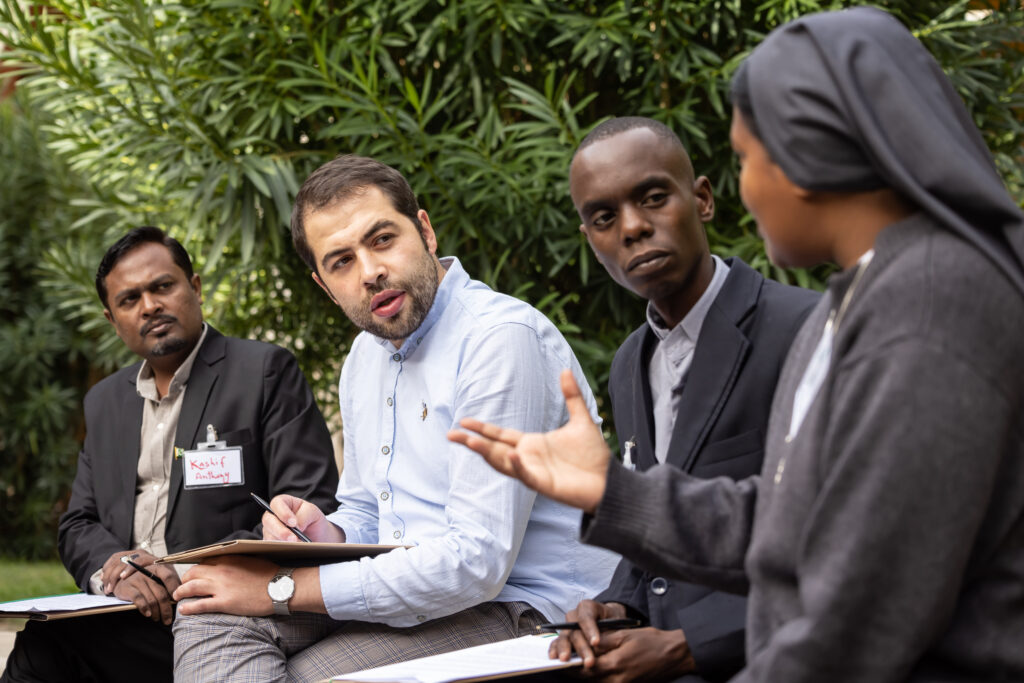This year’s Week of Prayer for Christian Unity, held from January 18 through the 25, offered an opportunity for Christians around the world to reflect on ecumenism and interreligious dialogue. “Christian Unity is living Jesus’ prayer ‘that all of them may be one,’” shares JPII Center Leader Evans Nyamadzawo (Cohort XIV, Zimbabwe), who participated in the World Council of Churches’ live broadcast for the Week of Prayer for Christian Unity’s in January 2021, “Ecumenism seeks to call various church traditions to visible unity.”
A quote from the Book of Isaiah, “Learn to do right; seek justice” (17.1), stands at the center of this year’s Week of Prayer for Christian Unity. This theme, selected in response to the extrajudicial killing of George Floyd in 2020, challenges Christian communities to pray and meditate in particular on racial injustice. As the “Resources for the Week of Prayer for Christian Unity,” jointly prepared and published by the Dicastery for Promoting Christian Unity and the Commission on Faith and Order of the World Council of Churches, states:
“Isaiah challenged God’s people in his day to learn to do good together; to seek justice together, to rescue the oppressed together, to defend the orphan and plead for the widow together. The prophet’s challenge applies equally to us today. How can we live our unity as Christians so as to confront the evils and injustices of our time? How can we engage in dialogue, increase awareness, understanding and insight about one another’s lived experiences?”
Learning and striving for justice and just action are integral to the shared prayers and programmings in the promotion of ecumenism. Evans reflects: “Ecumenical prayers have stood out to me when people from different countries, races, skin colors, languages, and church traditions set aside their physical barriers and differences to come together with a single goal of praising God.”
For Reverend Karikoga Hope, Russell Berrie Fellow (Cohort XV) and Interreligious Practitioner from the Church of Christ, ecumenism goes beyond what we might commonly associate with Christian unity. Rather, ecumenism is significant because of its ability to foster “unity and understanding between humanity irrespective of their beliefs.” Rev. Karikoga believes that Christian unity is about “loving those who have different views,” creating access to people who express their belief in different ways.
At the core of the JPII Center’s philosophy is dialogue: the need to converse not only with people of other religious traditions but also with those within the same tradition. Ecumenism—intrareligious dialogue—is critical to creating meaningful conversations between larger faith traditions: interreligious dialogue. “Dialogue is the heartbeat of unity,” shares Rev. Karikoga, “Without it, it is difficult to attain unity of peace and co-existence among humanity.”
Explore the Centro Pro Unione’s resources for this year’s Week of Christian Unity here.

